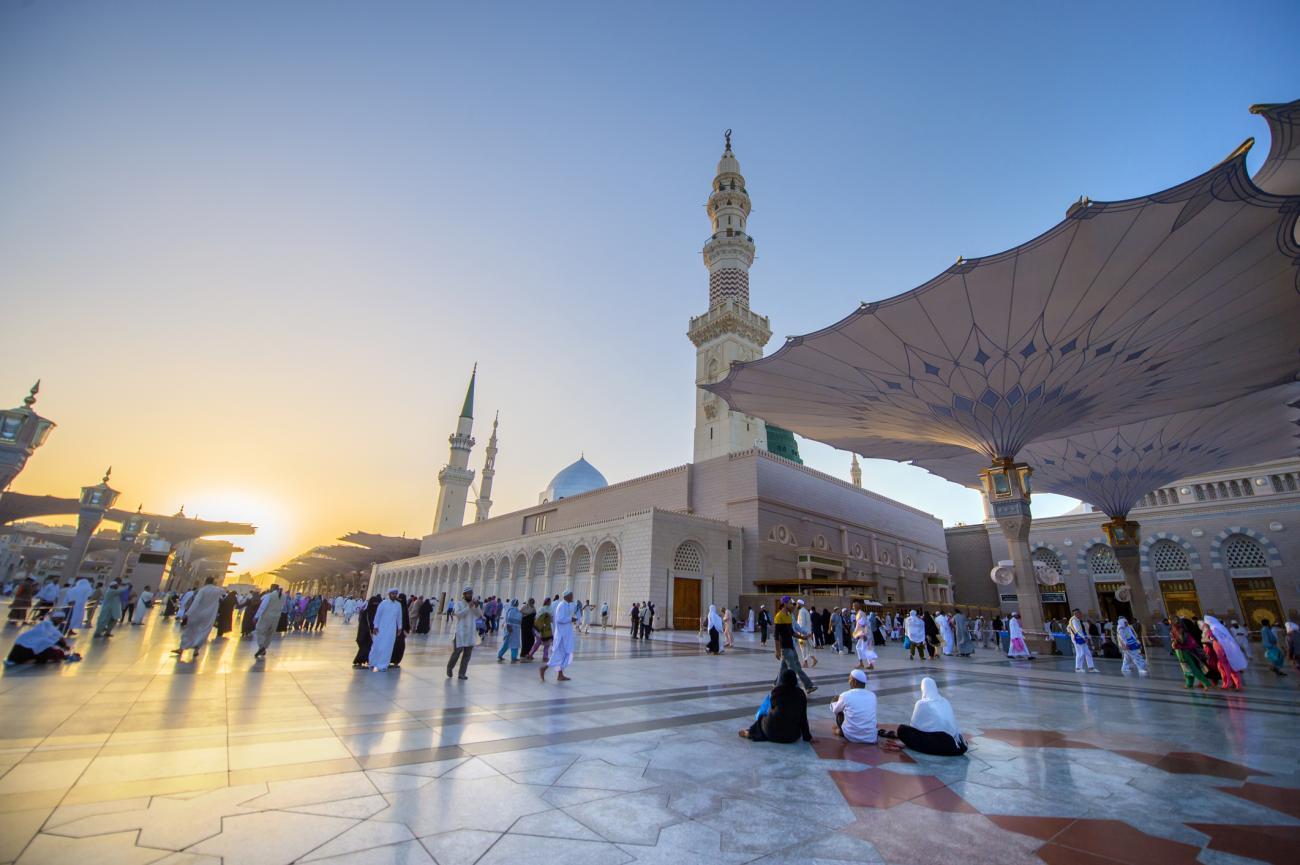Guide to Visiting Saudi Arabia and AlUla
Operations Director Marc visited Saudi Arabia, including the region of AlUla, and here answers some frequently asked questions about visiting the kingdom.
Until very recently, travel to the KSA had been restricted to those with work permits or those travelling for religious pilgrimage to the holy sites of Mecca and Medina (known as Umrah or Hajj, depending on when the pilgrimage is undertaken). I was lucky enough to visit myself recently.
Despite working with some of the best travelled people in the industry, I knew nobody who’d actually travelled to KSA, making the experience even more special than I’d expected. On my return, I was bombarded with a list of questions from colleagues, friends and family regarding what travel in KSA was really like. This is what I told them.

Q: What are some of the highlights?
The region of AlUla is one of the key highlights of any visit to Saudi Arabia. This is where you'll find the spectacular rock-carved city of Hegra, built by the Nabateans, who also built the iconic Petra in Jordan. Unlike Petra, Hegra is new to the world of international tourism and its setting in the desert, combined with the wonderful carved facades and tombs, make it a must-see. Also in AlUla you'll find dramatic desert scenery, canyons and unusual rock formations, including Elephant Rock, as well as the Maraya Concert Hall - the world's largest mirrored building, and the ancient old town of AlUla with its atmospheric alleyway and mud-brick buildings. In the rest of Saudi Arabia a must-visit is Jeddah, with its wooden buildings, balconies, markets and multicultural influences seen in everything from its art, culture, people and cuisine, a result of its status as an important ancient trading centre. Other highlights include the Hutaymah Crater, with its salt plain in the middle, the lively camel market at Buraydah and the capital Riyadh.
Q: Is it difficult to get a visa?
A: Absolutely not. It’s an e-visa that costs about $120 and mine came through in less than 24hrs.
Q: Did you meet many locals, in particular Saudi women?
A: Yes! To name but a few…in the Red Sea I went snorkelling with Mariam Shalan, one of the country’s top free-divers and had lunch with her and her mother Reem Bakheet, a diving instructor. In a coffee shop outside Riyadh’s Masmak Fortress, I met Njood Fahad a well-known Saudi traveller and Instagrammer. In Jeddah’s UNESCO Old Town my guide was Abir Abu Sulayman, the first Saudi woman to be granted a guiding licence. And when travelling to the Edge of The World, my jeep driver was Mona, a married women with university age children, one of whom – her daughter - was studying at Brown University in Rhode Island.
Q: Can foreign women travel to Saudi Arabia by themselves?
A: Yes. This was not always the case. In the past, foreign women under the age of 40 were only allowed to travel to KSA if they were accompanied by a brother, husband or father. There are now no such restrictions.
Q: Are there strict dress codes for men and women?
A: KSA is still a conservative country and you’d be unlikely to see people walking along Jeddah’s Corniche in shorts and strappy tops. However there are no requirements for women to wear headscarves or shapeless clothing (as there is, for example, in Iran). Most Saudi women will still wear some form of headscarf but there is no longer any legal requirement for them to do so.
Q: Are Saudi people friendly?
A: From my experience, very much so. You might not be as immediately fascinating to the locals as you might be in other parts of the world but this is mainly because Saudis are often very well-travelled and they are accustomed to seeing foreigners in their country for work or for religious visits. Saudis are also very family orientated - and restaurants often have numerous enclosed dining areas for privacy - but in the souks of Jeddah and as you travel around the country, you’ll find a very warm and healthy curiosity from the locals people who for the most part seem to be welcoming with open arms the liberalising reforms that are now making trips such as mine possible.
Q: Can you take alcohol into the country or access it while there?
A: No. Not yet at any rate. Certain ex-pats living on compounds will tell you that there are many to access alcohol as long-term residents but not for short-term visitors; this will be a dry experience. There is talk of allowing certain hotels to sell alcohol to foreign visitors in the future…but the country is not there just yet.
Q: Did you read any books on the country to prepare you for your visit?
A: Yes I read On Saudi Arabia: Its People, Past, Religion, Fault Lines – And Future – by Karen Elliott House. It opened my eyes to the far greater complexity of the country than I’d previously considered.
Q: Did it meet your expectations?
A: It far exceeded them. I’d been to Jordan before and had loved Petra and Wadi Rum, but Al Ula surpassed both of these experiences for me. The country was also much more scenically diverse than I’d realised. There is obviously desert (in fact, some of the most spectacular desert I’ve ever seen) but in addition there are 3000m+ mountains as well as a relatively untouched and stunning coastline along the Red Sea. It’s also culturally very diverse with people in the south sharing much more in common with their Yemeni neighbours than with many of those in the capital, Riyadh.
Q: What is the food like? And is it suitable for vegetarians?
A: The food in Saudi Arabia is pretty typical of the Middle East in general, that is to say, delicious! We’re talking dips, zesty salad, fresh hummus and homemade bread to start, followed by all manner of delicious grilled meats, including kebabs, chicken and lamb. The country is also famous for its fantastic barbequed fish, which you tear off in delicious chunks. Vegetarians will be well-catered for with breads, dips, salads, vegetables and falafel.
Q: What is the shopping like?
A: There are not a huge amount of souvenirs to bring back from Saudi, but some options include fresh coffee, saffron and all manner of other spices. You may find a traditional Arabic coffee mill, which makes a great gift to bring back home.
Q: Is Saudi Arabia safe?
A: In terms of crime rates, Saudi Arabia is one of the safest countries on earth, and it certainly feels that way walking around its cities. On a Wild Frontiers group or tailor-made trip, you will generally be with a guide all of the time, but if you do want to take a walk on your own, that isn’t a problem and you should be perfectly safe.
Q: What about money, phones and the internet?
A: Bank and credit cards will work as normal in Saudi Arabia. Rather than use cash it may be easiest to use a card which are accepted pretty much everywhere except the markets, but you can always withdraw cash from ATMs. Internet access is available everywhere so we would recommend calling over wifi from your hotel room, rather than using international roaming which could get expensive.
